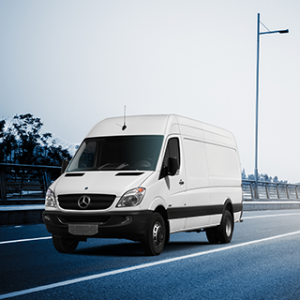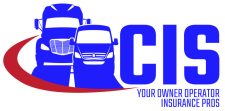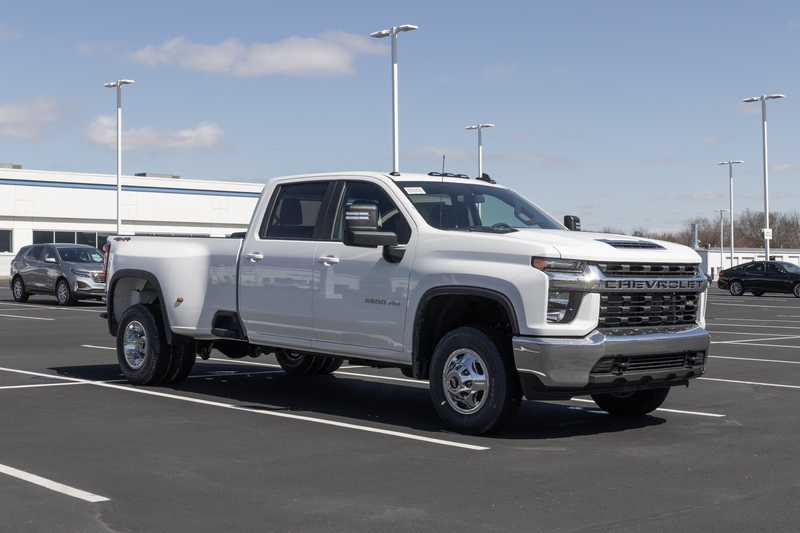Sean Duffy’s crackdown on non-domiciled U.S. drivers is totally shaking up the transportation industry.
Manufacturing is expanding nationwide, and new opportunities are opening up everywhere, guys.
Ready to be your own boss? You can start your own freight hauling business with just your dually pickup truck, cargo van, or sprinter.
But first things first:
What’s the Difference between Hot Shots vs Expediters?
You might hear “Hot Shot” and “Expediting” used interchangeably in commercial trucking insurance, but here’s the short answer:
- Hot Shots are usually 1-ton dually pickup trucks with gooseneck flatbed trailers.
- Expediters, on the other hand, can be anything from cargo vans and sprinters to straight trucks or even tractor trailers.
Read on for how Hot Shots and Expediters stack up, what they have in common, and what makes them different.
How are Hotshots and Expediters alike?
- Both Hot Shots and Expediters are time-sensitive trucking operations.
- Typically they both run beyond 300 miles and require Unlimited radius commercial insurance policies.
- Because of that long distance, many drivers don’t make it back home the same day.
- Some drivers choose to stay on the road for weeks at a time.
- Most are Owner Operators, meaning they own their trucks and work as independent contractors vs employees.
- Hot shot trucking insurance and expediting insurance require commercial policies with specific limits.
- If hauling freight for hire across state lines, FMCSA requires both hotshots and expediters to have a DOT Motor Carrier Authority

What is Hot Shot Trucking?
A Hot Shot driver typically gets behind the wheel of a 1-ton Dually Pickup Truck with a rear axle that can handle at least 9,000 pounds. These trucks usually have a gooseneck or fifth-wheel hitch in the bed, which makes it easy to hook up to different trailers depending on what they’re hauling.
Once you factor in the truck’s weight along with the freight, the total GVW (Gross Vehicle Weight) goes over 10,001 pounds.
Hot Shot drivers often specialize in moving cars or “toys” like motorcycles, boats, golf carts, RVs, and trailers. You’ll usually see them using 3- to 4-car wedge trailers to carry multiple cars or enclosed trailers to keep everything safe from the elements.
Some use flatbed trailers to haul machinery, farm equipment or oversized items like HVACs and others deliver RVs across state lines by towing them directly behind their truck.
To succeed with your dually you’ll need affordable hotshot insurance, and a niche with steady customers.
You can see more FAQ at Hot Shot Insurance.

What is Expediter Trucking?
An Expediter can work with all kinds of vehicles – cargo vans, sprinters, straight trucks, or even tractor trailers.
Think of Expediters as the superheroes of commercial cargo. They handle anything and everything that’s time-sensitive, from auto parts and machinery to all the little widgets needed for production lines.
Basically, if something goes wrong or simply needs to get somewhere fast, they’re the ones who get the call.
Expediters can also take on time-sensitive freight that needs temperature control, like plants or food.
Some cargo vans come equipped with a refrigerated compartment, so with the right Reefer Breakdown Coverage you can expand what you haul to include more than just general freight.
You can see more FAQ at Cargo Van & Sprinter Insurance.
Do Hot Shots and Expediters Need their Own DOT Authority?
If you’re hauling freight for hire across state lines, FMCSA requires you to have an MC number (Motor Carrier Authority) and proof of minimum insurance coverage regardless of your unit’s size.
The only exception is if you’re an owner-operator leased to a motor carrier and hauling under their DOT authority.
Are Hotshot Insurance and Van Insurance limits the same?
No, when hauling freight for hire across state lines, FMCSA has 2 different requirements for Hot Shots and Expediters.
Anyone with DOT Motor Carrier Interstate Authority needs a minimum level of insurance to stay compliant with these minimum limits.
- 1 Ton Dually Pickup Truck with trailer and all larger trucks are required to carry a minimum $750,000 in auto liability coverage.
- Commercial Vans under 10,001 GVW are required to carry a minimum of $300,000 in auto liability coverage.
The type of insurance you need is called Commercial Auto Liability.
See FMCSA Insurance Filing Requirements:
- Freight: $750,000 – $5,000,000, depending on commodities transported
- $300,000 for non-hazardous freight moved only in vehicles weighing under 10,001 lbs.
For intrastate commercial vans under 10K GVW, rules depend on your state.
Most expediters travel well across state lines, so this blog focuses on interstate requirements.
You can also read more at What is the Definition of a Commercial Vehicle?
Why Do Most Hot Shots and Expediters Carry $1,000,000 Liability?
Most common question from Expediters:
IF FMCSA requires hot shots and big trucks to have $750,000 in Commercial Auto Liability, and vans under 10K GVW only need $300,000…
Why do my brokers insist on $1,000,000 in liability coverage?
Short answer:
Because industry standards are usually higher than what the FMCSA requires.
In all commercial trucking, the standard minimum for Auto Liability is typically $1,000,000.
This often applies to Hot Shots and Expediters regardless of what type of vehicle you’re running.
Yes, you can start your USDOT number at FMCSA’s lower limits, and some customers might not care about that $1,000,000 coverage right away.
But here’s the catch: at some point, a broker or shipper is probably going to ask for it.
So, it’s a good idea to check with your agent to see how much that $1,000,000 coverage would cost if you needed to increase your liability limit later on.
Get in touch with a transportation insurance specialist–she’ll walk you through all these nitty-gritty details and more.
Once you two have chatted, she can help you more with this simple cheat sheet on How to Start Your Own DOT Motor Carrier Authority for a Van or Hot Shot–courtesy of CIS.
You can read the long answer at Why do Cargo Vans and Sprinters need $1,000,000 in Liability?
What do Hot Shots and Expediters Haul?
Obviously a Hot Shot with a 1-ton dually and a gooseneck trailer has way more space than a cargo van.
As a Hot Shot, you’ve got more options when it comes to what you can haul.
Duallys have more trailer options for moving larger freight like machinery, farm equipment, construction materials, air-conditioning units etc.
Some Hot Shots prefer to focus on towing cars or “toys” like motorcycles, boats, golf carts, RVs, or trailers.
You can use a 3-4 car wedge trailer to haul multiple vehicles or go with an enclosed trailer if you want to keep everything extra secure.
Of course if you’re an expediter working with a straight truck or a tractor-trailer, the sky’s the limit when it comes to what you can carry with all that extra space.
But don’t underestimate what cargo vans and sprinters can do.
Small and nimble, they’re a great fit for smaller loads like auto parts, machine parts, plastics, repair pieces, or even refrigerated goods that need reefer coverage.
Some of the smaller loads are also very valuable.
For example, a manufacturing plant might need a machine part delivered ASAP.
They’re usually willing to pay extra for an expediter to get it there within hours and get the production line back up and running.
Are the Cargo Insurance Requirements different?
To be clear, unless you’re a household goods mover, FMCSA doesn’t actually require proof of Motor Truck Cargo Insurance for Hot Shots or Expediters.
But like Liability—market demands often dictate how much coverage you’ll need to win bids.
Hot Shot insurance contracts often start with $100,000 in Commercial Cargo Insurance, but the more common choice is $150,000.
If you’re hauling higher-end cargo or multiple cars, you may end up bumping it to $250,000 over time.
Expediters, on the other hand, generally stick to $100,000 in coverage.
It’s a good idea to understand exactly what’s covered–and what isn’t.
Here’s a quick blog to break it all down: Commercial Truck Cargo Insurance Explained.
The cost of your cargo insurance is based on what you’re hauling and the coverage limits you choose.
Your truck insurance pro at CIS can give you that breakdown in a few minutes.
Hot Shot Insurance Cost vs Expediting
With Hot Shot or Expediting Insurance, there’s no such thing as “one-size-fits-all.”
We can give you a ballpark figure if you’d like, but it won’t be super accurate.
Premiums for this kind of trucking are simply very unpredictable.
A good solid estimate depends on your personal details, like:
- Your insurance credit
- Age
- Driving history
- Vehicle type
- Radius
- Commodities
- Where you live*
* Check this out: Best State for Trucking Insurance.
Before you go any further with your plans, do yourself a favor and take a few minutes to chat with one of our trucking insurance pros at CIS.
CIS (330) 864-1511
She’ll whip up a lightening fast proposal for you and even throw in some helpful tips along the way.
Getting more than just a ballpark estimate is fast, easy and totally free.
If your numbers look good, THEN check out How to get your MC Number for our step by step cheat sheet.
Who Has the Best Hot Shot and Expediter Insurance?
Right now, it’s all about GEICO!
For years Progressive was the go-to for both new and experienced Hot Shots and Expediters.
But now GEICO is in the game, and they’re giving Progressive a real run for their money.
Gecko and Flo are both duking it out for your truck insurance with lower premiums.
If you’re thinking of becoming a Hot Shot or Expediter, take advantage of this opportunity to lock in the lower rates now.
You can read more at GEICO Commercial Truck Insurance program or Why GEICO has the cheapest Hotshot Insurance.

CIS is the industry leader for Hot Shot and Expediting insurance, as recognized by Expediters Online.
Give us a call and we’ll quote both GEICO and Progressive to find YOU the best deal.
And why do so many Hot Shots and Expediters start and stay with CIS?
Check out our 20 years of consistent CIS 5-star reviews.
How Do Hot Shots and Expediters Find Freight?
No amount of insurance savings will help if you don’t have freight to haul.
That’s why figuring out where your loads are coming from is key before setting up your DOT authority or buying insurance.
Of course, having existing customers is awesome, but most new businesses rely on solid load boards to get rolling.
If you’re running a Hot Shot, Cargo Van, Sprinter, or Straight Truck, you’ve got to check out MyVirtualFleet.com before you do anything else.
Why? Because they’re not just your average load board—they really go the extra mile:)
How does My Virtual Fleet help you win more loads?
- MVF shares the bid results with you so you can actually see what’s going on behind the scenes.
- MVF teaches you how to master line-item bidding—or help you level up if you already know the basics.
- MVF even shows you how to build your own direct customers, so you’re not relying on bid boards forever.
Just getting started as a new Motor Carrier? Or maybe you’re already established and want more options?
Either way, My Virtual Fleet helps Hot Shots and Expediters make more money!
Bottom line, get your ducks in a row and talk with experts before you launch any small business.
There are a lot of people who want to help you succeed, and are always ready to talk.
CIS (330) 864-1511
And if you’re reading this in the middle of the night:)
…Start the conversation by filling in a few blanks online, we’ll circle around to help you with the rest.
Commercial Truck Insurance Quotes Online
We are CIS, and We Make Your Truck Insurance Easy!
Authors
Shelly Benisch, CIC, TRS started Commercial Insurance Solutions, Inc. (CIS) in 2002 and brings over 30 years of experience in Commercial Truck Insurance. As one of the top 25 Progressive Truck Insurance Agency Leaders in 2024, she helps Motor Carriers and Owner Operators across the country find affordable trucking insurance quotes with GEICO, Progressive and more. Shelly also writes a free Trucking Blog packed with all kinds of tips. Her team of Truck Insurance Experts have earned CIS consistent 5-star reviews and Progressive's Top 25 Truck Elite Status. For expert Commercial Truck Insurance advice, give Shelly a call at (330) 864-1511
CEO
#CISDoesThat Commercial Truck Insurance for owner operators and motor carriers.Christina Cummings, TRS certified, leads Commercial Insurance Solutions, Inc. (CIS) as Executive Director and true experienced advice on Commercial Truck Insurance. She secures the most affordable GEICO quotes and Progressive quotes...and more for small Motor Carriers and Owner Operators nationwide. She is your "go to" person at CIS for advice with underwriting questions, tips and networking opportunities for Small Truckers. Under her leadership CIS earned Progressive's Top 25 Truck Elite status in 2024 and consistent 5-Star Google reviews. She also co-authors the free CIS Commercial Truck Insurance Blog for small Motor Carriers and Owner Operators, sharing her bottom line tips on how to find more affordable Commercial Truck Insurance. Looking for expert trucking insurance advice–Christina is your go to leader at (330) 864-1511 #CISDoesThat


